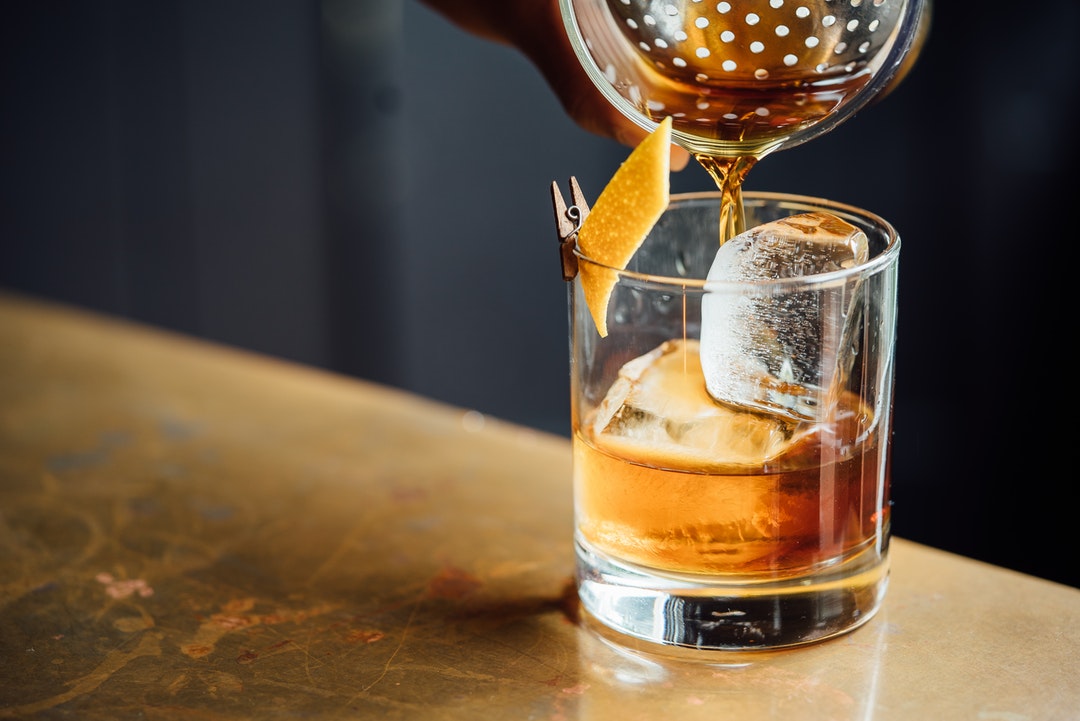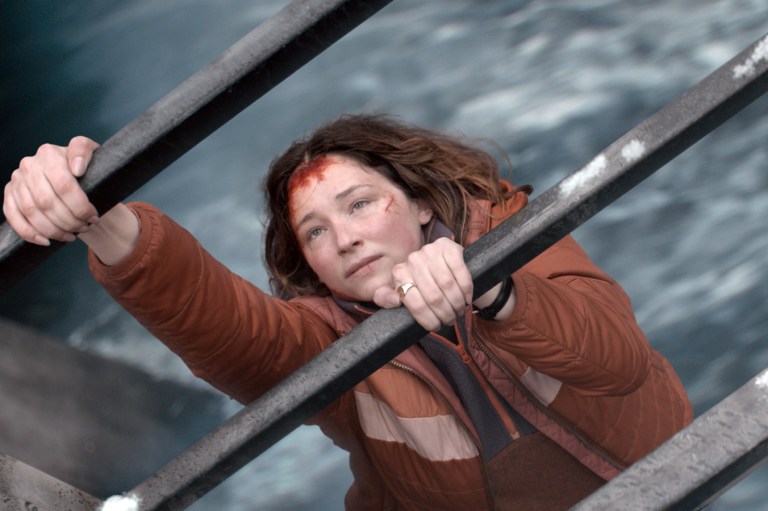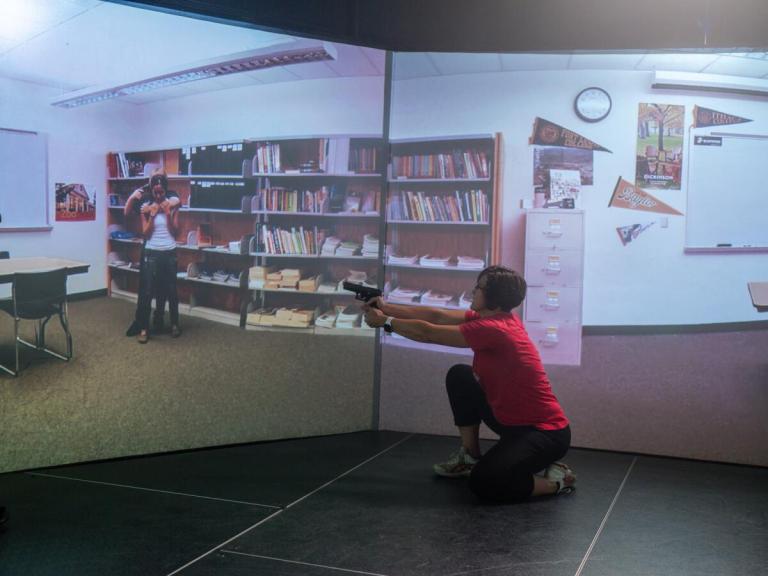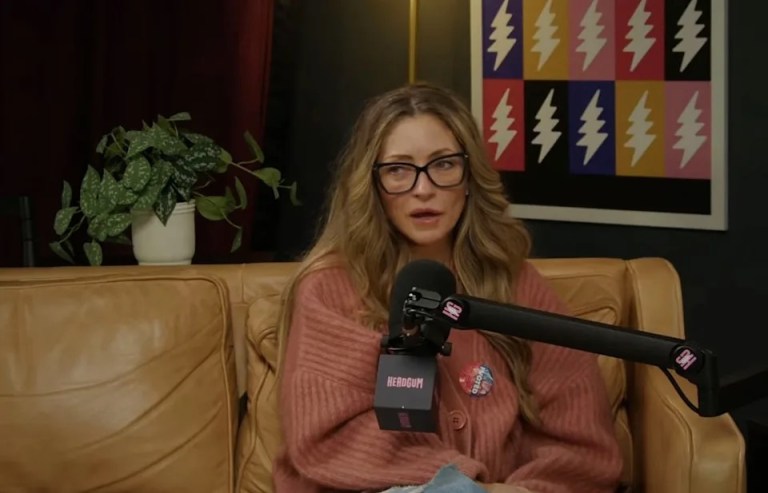
There And Back Again: Why I Gave Up Alcohol At 22
If I didn’t stop drinking, I was going to wind up taking my life, either intentionally or accidentally.
By ![]() Seamus Kirst
Seamus Kirst
Trigger warning: alcohol and drug abuse
Five years ago, when I was 22, I decided to stop drinking. Considering my history, the decision happened after a rather insignificant night.
It did not happen the morning I woke up in the hospital with hypothermia and alcohol poisoning.
It did not happen when I spent 30 days in rehab after getting into a drunken fight with my parents and chugging a bottle of mouthwash and a handful of prescription pills.
It did not happen after a 50-something-year-old bartender told me I needed to kiss him to get my ID back, which somehow led to me bringing him back to my dorm and, upon realizing I regretted the decision, pretending to be passed out as he pressed his naked body against mine and repeatedly whispered, “Don’t fall asleep on me, babe.”
It did not happen after I had to run away from a homeless man who led me to a park and exposed himself to me after I asked him for directions in Providence.
It did not happen after I almost left a New Delhi Men’s Fashion Week party with a man who said he was a model but was actually a pimp, who texted me hours later trying to sell me an hour in a limo with someone for $400.
It happened after what was, for me, a rather routine, if not tame, night: I went out drinking with my friends, blacked out and had to be brought home.
When I woke up in the morning, I felt like I was reaching the surface of water just as I was about to use my last breath of oxygen. I had been so consumed by self-created chaos that I had not had clarity of mind for years.
“What if my friends hadn’t been there?” I asked myself. “What if they hadn’t brought me home?”
Of course, I already knew the answer, but for the first time I allowed myself to let it sink in: If I didn’t stop drinking, I was going to wind up taking my life, either intentionally or accidentally.
And it was going to happen soon.
I had been drinking regularly since I was 15. Yet the issue with high school and college drinking is the blurry line between typical—if dangerous—experimentation and blatant drinking problems. It wasn’t that bizarre that I hid a bottle of vodka beneath the floorboards in my parent’s attic, but I crossed beyond standard teenage rebellion when I’d pour vodka in my mug full of Sprite as I did my homework.
As a gay teenager in an inner city high school, alcohol took on an extra significance. Drinking is the great equalizer—anyone can do it. Though I loved my close friends, I always felt different, apart. I used alcohol as a means to bond with classmates with whom I otherwise had nothing in common.
In retrospect, the truth was glaring and obvious. By the time I graduated from high school, I had been hospitalized three times for alcohol poisoning, completed a month-long stint in rehab and spent a night in a psychiatric center after a drug-induced breakdown.
After going to rehab in my sophomore year of high school, I stayed sober for a few months while I completed an outpatient program, but my heart was not in it. I was convinced that I did not have a problem. After each hospitalization, I would have a window of time where I essentially “grounded” myself from alcohol, but within a few weeks I would lie to my parents and find my way back out.
I made myself a victim. When people tried to talk to me about my behavior, whether it be adults or friends, I would lie and if they kept pushing, then cry.
My biggest blessing and curse in high school was what I was able to achieve despite all of my struggles. I was the valedictorian of my class and was accepted at Brown University.
I left for college with high hopes. I wanted to study International Relations and become a human rights lawyer. But without the structure of high school, I quickly fell apart; I drank almost every night. Where I had been admired for my work ethic in high school, in college I schemed to do the bare minimum.
Though my grades were lower than high school, they were strong enough that I was able to maintain a façade of being okay. I ignored the changes happening to me. I no longer took any joy out of learning, or any joy out of much anything at all, besides partying.
I hid my past from my friends at Brown, but as time went on, my troubling relationship with substances came to the surface. By the time I graduated, I suffered from a Xanax addiction and had been hospitalized an additional time after an alcohol and cocaine binge. I’d black out a few times a week. I was aggressive and reckless. I constantly started fights I couldn’t remember, both with friends and strangers.
When I wasn’t drunk, I was hungover. My anxiety was through the roof. I had trouble sleeping, and would take whatever I could get, whether it be NyQuil, Ambien or Vicodin, just to get through the night.
After college, I moved to New York without a job. My low point: after drunkenly breaking up with my ex-boyfriend at a party, I tried to run into heavy New York traffic while two friends walked me home. They pulled me back. I was in a complete blackout. They tell me I sobbed for an hour and passed out. I awoke the next day at 2 p.m., completely disoriented, and I barely remembered anything from the night before. I stopped drinking for a few weeks and sulked that I had to. Within the month, I decided I was going to try drinking again with strict rules in place. I would drink only during the weekend and would have no more than three drinks spread out throughout the night.
Needless to say, I was soon drinking during the week and blacking out routinely on weekends. And so on the Sunday morning of the second weekend, I woke up and decided that the only way I might ever be happy is if I never drank again.
If you’re a heavy drinker, that decision can seem impossible. I always ran with a hard-partying crowd. For someone young, the thought of losing access to the social situation they’ve always known is terrifying. Whenever I would try to become sober—which happened at least ten times before it actually worked—the voice inside my head would incessantly shout: What if I’m less funny when I’m sober? What am I even going to talk to this person about if I’m not drunk? I can’t dance until I’ve taken a few shots! Sleeping with someone without alcohol?!
I told myself that drinking is what made my world feel magical. My first couple of drinks gave me manic energy and a sweeping sense of happiness, and I would spend the rest of the night trying to not only maintain that feeling, but to make it grow. I remember sitting at my kitchen table during senior week at Brown. It was around noon and I was incredibly hungover. I felt completely flat and empty, but as soon as I chugged a beer, I came back to life. My depression temporarily subsided and I was bubbly and talkative and vivacious. I gleefully proclaimed, “Wow! I love drinking!” I was convinced I’d lose my true self if I gave up alcohol, because at that point it was rare that I felt happy when I wasn’t drunk.
Alcohol felt like my lifeline, and it was only on rare occasions—during common morning panic attacks—that I might even briefly acknowledge that it was actually destroying my life.
One minute I would be drinking and dancing with my friends at the bar and then my next moment of worldly awareness would be when I woke up completely disoriented, panicked, unsure of where I was. Whether I found myself in my dorm basement in my underwear, naked in someone’s bed or on a beach in Costa Rica missing my shoes and a wallet, I was never really that shocked.
More times than I would care to admit, I woke up in a pool of my own urine or with vomit splattered against the walls as my phone repeatedly rang or a concerned friend pounded on my door. I often didn’t ask questions about what happened the night before, because I didn’t want to know the answers.
For me to admit that I did not remember the insults I hurled, or that I did not mean what I had said, would have meant acknowledging that I was out of control.
For me to admit that the sexual situations I found myself in were scary or shameful would have meant reevaluating my own habits and addictions.
Alcoholism has taught me that you really can convince yourself of anything. Instead of recognizing that I needed help, I convinced myself that my outlandish behavior was what made me interesting. Deflection was my weapon of choice. If I woke up frightened, I would tell the story for a laugh. Though people would occasionally confront me, most acted as if I were entertaining. Besides, I quickly realized, if my “partying” pushed a friend away, there were always five more people who wouldn’t notice, or frankly care, how many drinks I had or how drunk I got so long as they didn’t have to physically carry me home.
It was only five years ago that I was finally able to admit to those I loved—but most importantly, to myself—that drinking wasn’t worth it if I would one day wake up seriously hurt.
If I woke up at all.
Learning to live a sober life, in many ways, has been like trying to walk when you’re used to crawling. I still remember how easy it was drink and how much more effort it has taken for me to reach an emotional place where I’m strong enough to choose against it. Besides, whatever problems or feelings I would drink to escape came back, tenfold, the morning after.
For me, the hardest part of sobriety has been learning to be comfortable with myself all of the time. Every day, it gets a little easier. I’ve had to teach myself how to communicate thoughtfully without poisoning my speech with the fury of alcohol. I have had to learn how to flirt and pursue romance without being a histrionic drunk, lacking both grace and inhibitions.
I understand I have a long way to travel before I achieve self-acceptance or real serenity. But what I do have, finally, is the peace of mind of knowing that I can wake up every morning remembering all that I did the night before—for better or worse—and knowing, in the end, I will be okay. ![]()











